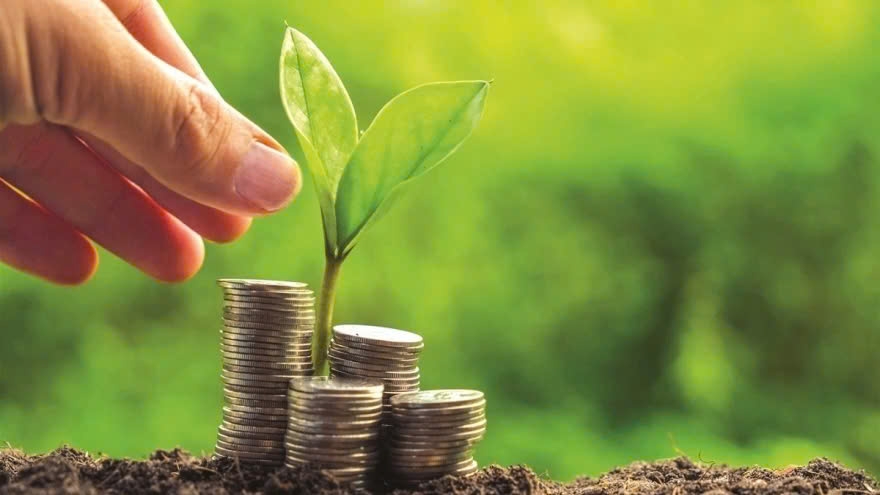
The damage caused by natural disasters has significantly increased over recent years, accounting for about 1.5% of annual GDP. As a result, green growth, the circular economy, and sustainable development have all become the direction in which economic development strategies are moving, not only in Vietnam but also in many countries around the world.
Amid this context, green finance is seen as an important tool which Vietnam and other countries are focusing on to achieve green and sustainable growth. However, despite being implemented in Vietnam for nearly a decade, the scale of green finance remains modest.
Statistics unveiled by the World Bank indicate that the country issued only around US$1.16 billion in green bonds between 2019 and 2023, a modest figure compared to the estimated annual capital demand of US$20 billion needed to achieve green transition goals.
Developing the green finance market can be viewed as crucial for improving the local business environment whilst also contributing to sustainable development goals, as well as reducing the impact of climate change in Vietnam.
Dr. Le Duy Binh, CEO of Economica Vietnam, a private consulting and research firm, points out that Vietnam has the potential to become an attractive destination for international green capital due to its improved legal environment. Financial institutions and businesses are making every effort to engage in circular economy practices and develop green finance more effectively to mobilise investment for development. The local green finance market is already developing with three key components, namely the green credit market, the green bond market, and the green stock market.
Meanwhile, Dr. Le Trung Thong, director of Lagom Vietnam JSC which specialises in education and waste recycling notes that many businesses face difficulties when it comes to preparing green finance documents and do not yet meet transparency and reporting requirements.
Large financial institutions often require strict criteria, while the minimum lending amounts are too large compared to the needs of small businesses. This mismatch creates a challenge for small enterprises in accessing green finance, particularly as they may not meet the stringent conditions set by these institutions or may not need such large amounts of capital, explains Dr. Thong.
Sharing this perspective, Dr. Nguyen Phuong Nam, CEO of KLINOVA Climate Change Consulting & Services Company, also says that Vietnam has not yet built a strong enough system of standards for banks to apply when considering green loans.
Currently, both domestic and foreign financial institutions nationwide make use of different standards when providing green credit. Companies seeking green capital must comply with the standards of the specific institution they are borrowing from. This lack of uniformity and standardisation increases transaction costs and causes confusion for businesses, says Dr. Nam.
He suggests that international financial groups offer abundant funding potential and Vietnamese firms should improve their capacity in a bid to meet the standards of these organisations.
In the green stock market, a major barrier is the lack of participation from both domestic and international investors. Dr. Pham Nguyen Anh Huy of RMIT University suggests that incentives need to be created in order to encourage investment in this market, such as improving transparency and using international credit rating agencies.
To maximise capital from international financial groups, he says Vietnam needs to complete legal frameworks and standards while supporting companies to enhance their capacity to access green finance, thereby realising sustainable development goals.
Many experts believe that over the coming years the carbon credit market will become a key pillar of green finance and help the country to benefit from the free trade agreements it has signed. The carbon credit market will also help it to attract foreign direct investment, especially for exports to demanding markets like the European Union and the United States.
Regarding the green finance market, Dr. Lai Van Manh of the Institute for Strategy and Policy on Natural Resources and Environment reveals that the carbon market will begin its test run in 2025 and will officially begin operation by 2028. This can be viewed as an important step for Vietnam to fulfill its emission reduction commitments and open up significant opportunities in terms of international trade. However, the carbon market still faces challenges, such as low liquidity and a lack of uniform regulations.
Vietnam has a significant opportunity to develop green finance, although it also faces challenges and needs to overcome barriers and support businesses when it comes to accessing green finance, a factor which will play a crucial role in achieving the Net Zero commitment by 2050, says Dr. Manh.
In his view, stronger actions towards formulating policies and developing the green finance market will not only stimulate economic growth, but also protect the environment and contribute to long-term sustainable development.


